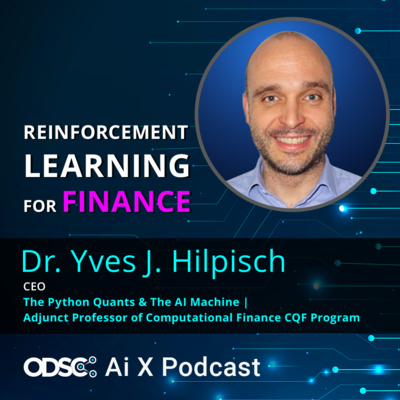Healthcare Experts Explore Balancing AI Oversight and Innovation at BCG Event

**Healthcare Experts Explore Balancing AI Oversight and Innovation at BCG Event**
In an era where artificial intelligence (AI) is revolutionizing industries, the healthcare sector stands at the forefront of this transformative wave. From predictive diagnostics to personalized treatment plans, AI holds immense potential to enhance patient outcomes and reduce costs. However, the rapid adoption of AI technologies also raises critical questions about oversight, ethics, and the need to strike a balance between innovation and regulation. These pressing issues were the focus of a recent event hosted by Boston Consulting Group (BCG), where healthcare experts, policymakers, and technologists convened to discuss the future of AI in healthcare.
### The Promise of AI in Healthcare
The event opened with a keynote address highlighting the remarkable advancements AI has already brought to healthcare. Machine learning algorithms are now capable of analyzing medical imaging with accuracy comparable to, or even exceeding, that of human radiologists. AI-powered tools are being used to predict patient deterioration, optimize hospital operations, and even accelerate drug discovery processes.
Dr. Emily Carter, a leading AI researcher and one of the panelists, noted, “AI is not just a tool; it’s a paradigm shift. It allows us to move from reactive care to proactive, predictive, and personalized care. But with great power comes great responsibility.”
### The Oversight Challenge
While the potential of AI is undeniable, the event also underscored the challenges of implementing these technologies responsibly. One of the central themes of the discussion was the need for robust oversight mechanisms to ensure patient safety, data privacy, and ethical use of AI.
“Healthcare is a high-stakes industry where errors can have life-or-death consequences,” said Dr. Raj Patel, a regulatory expert. “We need to ensure that AI systems are transparent, explainable, and rigorously tested before they are deployed in clinical settings.”
Panelists debated the role of regulatory bodies like the U.S. Food and Drug Administration (FDA) in setting standards for AI in healthcare. While some advocated for stringent regulations to mitigate risks, others cautioned against over-regulation that could stifle innovation.
### Striking the Balance: Innovation vs. Regulation
The crux of the discussion revolved around finding the sweet spot between fostering innovation and ensuring adequate oversight. Several speakers emphasized the importance of a collaborative approach involving multiple stakeholders, including healthcare providers, technology companies, regulators, and patients.
“Regulation should not be seen as a barrier but as an enabler of trust,” said Sarah Lin, a policy advisor specializing in AI ethics. “Clear guidelines and standards can actually accelerate adoption by giving stakeholders the confidence that these technologies are safe and effective.”
One proposed solution was the adoption of adaptive regulatory frameworks that evolve alongside technological advancements. For instance, the concept of “sandboxing” was discussed, where new AI applications could be tested in controlled environments before broader deployment.
### The Role of Data and Bias
Another critical topic was the role of data in training AI models. While AI thrives on large datasets, the quality and diversity of these datasets are equally important. Several panelists raised concerns about the potential for bias in AI systems, which could exacerbate existing healthcare disparities.
“AI is only as good as the data it’s trained on,” warned Dr. Maria Gonzalez, a data scientist. “If we feed biased data into these systems, we risk perpetuating inequities in healthcare access and outcomes.”
To address this issue, experts called for greater transparency in data collection and algorithm design, as well as initiatives to ensure that datasets are representative of diverse populations.
### The Human-AI Partnership
Despite the challenges, there was a consensus that AI should be viewed as a tool to augment, rather than replace, human expertise. The concept of a “human-AI partnership” was a recurring theme, with panelists emphasizing the importance of maintaining a human touch in healthcare.
“AI can handle the heavy lifting of data analysis, but it cannot replace the empathy and judgment of a skilled healthcare professional,” said Dr. John Kim, a practicing physician. “The goal should be to empower clinicians with AI tools that enhance their capabilities, not to sideline them.”
### Looking Ahead
As the event concluded, it was clear that the journey toward integrating AI into healthcare is both exciting and complex. The discussions highlighted the need for a balanced approach that prioritizes patient safety and ethical considerations while fostering innovation.
BCG announced plans to publish a white paper summarizing the key takeaways from the event, along with actionable recommendations for stakeholders. The hope is that these insights will serve as a roadmap for navigating the challenges and opportunities of AI in healthcare.
In the words of one attendee, “AI is not just the future of healthcare; it is the present. The question is not whether we will use AI, but how we will use it responsibly.”
As the healthcare industry continues to grapple with these questions, events like this one serve as vital platforms for dialogue, collaboration, and progress. The road ahead may be complex